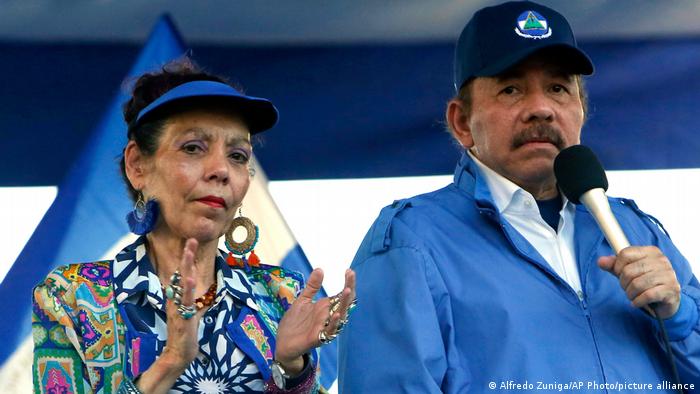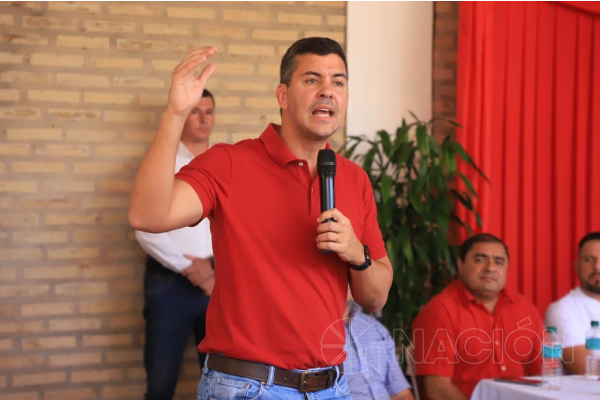Opponents of the regime of Daniel Ortega and Rosario Murillo affirm that impunity in Nicaragua worsened and became more notorious after the crisis of April 2018, the year that there was a social revolt that the dictatorship ordered to suppress with blood and fire.
This impunity has been reflected, according to experts and opponents, in international reports that place Nicaragua as the most corrupt and unpunished country in Central America. At the Latin American level, it is only surpassed, in these indices, by Venezuela and Haiti.
The First Atlas of World Impunity, published on February 17, with the analytical support of Eurasia Group, ranks Nicaragua as the country with the most impunity in Central America and the third in Latin America, ranking 38th.
Related news: Nicaragua, the country where impunity reigns in Central America
Opposition member Alexa Zamora, one of the 94 people declared stateless, points out that the score given to Nicaragua is due to the low levels it obtained in the indicators of democratic governance and human rights.
«It is not a secret to anyone that democratic governance is directly related to institutionality. Nicaragua is not exactly the best example of institutionality, quite the opposite, it has been disintegrating to such an extent that all power is concentrated in the dictatorial couple (Daniel Ortega and Rosario Murillo),” Zamora told Article 66.
“While it is true that the most evident setback has occurred from 2018 to date, due not only to the sociopolitical crisis, but also to the escalation of repression in Nicaragua, where there is no religious freedom and without losing sight of the processes of denaturalization that are arbitrary and violate the most basic human rights,” he added.
Nicaragua is positioned as the nation with the worst score in the isthmus in the dimensions of governance (14) and abuse of human rights, with 36 points. The numbers that rate the Ortega government the worst are based on the abuses of power committed as a result of the 2018 social protests that left more than 300 murdered, according to human rights organizations, adding to this arbitrary arrests and convictions for invented crimes. .
Practice promoted by Ortega and Murillo
The sociologist and researcher Elvira Cuadra and the opposition member Héctor Mairena, a member of the Political Council of the Blue and White National Unity (UNAB), consider that in Nicaragua impunity is “promoted” by the same regime. This is demonstrated, according to Mairena, when the Executive totally and absolutely controls the Judiciary and the entire justice system in the country.
“Through this control, he has not only accused, condemned the people who oppose the regime in spurious trials, applying laws that lack any legality; it also protects those who have committed crimes and corruption,” Mairena said.
“The dictatorship is the one who maintains a system of impunity in Nicaragua, particularly since 2018. But this state of impunity against corruption and crimes is the cement that unites Ortega and its followers. By keeping its criminals in a state of impunity and protection; thus achieves a support that buys that way. The dictatorship of the Ortega Murillo is the support of impunity in Nicaragua », he added.

Cuadra points out that impunity is a systematic practice that the regime has promoted among all public officials to cover up acts of corruption and serious violations of human rights.
“With this practice of impunity, people have been protected, starting with Daniel Ortega himself and Rosario Murillo who have committed crimes against humanity; they have killed people in the framework of the 2018 protests; They have systematically violated the laws that exist in Nicaragua, the Political Constitution and that daily make use of their power in public institutions to maintain a police state over all of Nicaraguan society,” said the sociologist.
Absolute control without balance
The expert in anti-corruption issues Martha Patricia Molina indicated to Article 66 that as long as Nicaragua continues under the dictatorship of Ortega and Murillo, the indicators and studies worldwide regarding these issues, such as impunity and corruption, will always be negative.
“Impunity is defined as the exercise of power without checks or balances, and that is precisely what is happening in Nicaragua. The high levels of corruption, the abuse of power, the lack of accountability and the non-existent access to public information, make possible an increase in impunity”, he stated.
The study also highlights the ways in which impunity undermines democratic societies and accountability manifests itself in non-democratic systems. Variations in impunity ultimately come down to politics, leadership, and policy choices.
“We have an Executive Power that manages public money without being accountable and a Comptroller General of the Republic that does not fulfill its job of being a supervisory entity. At the same time, this institution always projects figures in its annual management report that responds to audits that are disguised to give the impression that State contracts and the spending of public money are carried out in accordance with what is established by law, but this is not like this,” added Molina.
Mairena believes that the high rates of corruption and impunity will necessarily have to change because “the conquest of democracy in Nicaragua is closely linked to the demand for justice.”
















